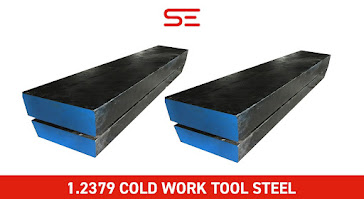Why Everyone Is Talking About Mould Steel Right Now
Mould Steel, also spelled as mold steel, is a type of steel that is specifically designed for use in the manufacturing of molds or dies used in various industrial processes, especially in the plastics and metalworking industries. Moulds or dies are tools used to shape, form, or stamp materials into specific shapes, and mould steel is chosen for its particular properties that make it well-suited for this purpose. Here are some key characteristics and considerations related to mould steel:
High Hardness: Mould steel is known for its high hardness, which is essential for resisting wear and abrasion that occurs during the molding process. This hardness allows the mold to maintain its shape and precision over extended periods of use.
Good Wear Resistance: Mould steel exhibits excellent wear resistance, making it suitable for applications where the mold is subjected to repetitive and abrasive forces.
Heat Resistance: It has good heat resistance properties, which are crucial because molds often come into Contact with Hot Materials, such as molten plastics or metals.
Corrosion Resistance: Some types of mould steel are designed to have good corrosion resistance to withstand exposure to moisture and other corrosive elements.
Machinability: Mould steel should be machinable to allow for the precise machining and finishing of the mold's surfaces to achieve the desired product shape.
Toughness: While hardness is important, some degree of toughness is also necessary to prevent the mold from fracturing or chipping during use.
Types of Mould Steel: There are several types of mould steel, each with its specific characteristics. Common types include P20, H13, S7, and D2, among others. The choice of mould steel depends on factors like the type of material being molded, production volume, and operating conditions.
Surface Finish: Mould steel's surface finish is crucial because it directly affects the appearance and quality of the finished product. A smooth and polished surface helps achieve a high-quality finish on the molded part.
Maintenance: Regular maintenance and proper care are essential to prolong the lifespan of moulds made from mould steel. This includes cleaning, lubrication, and, in some cases, heat treatment.
Cost Considerations: Mould steel can vary significantly in cost, and the choice of steel should balance the required performance with the budget constraints of the project.
Mould steel plays a critical role in various industries, including automotive, aerospace, consumer goods, and more. It enables the mass production of consistent and high-quality parts and products. The choice of mould steel and its proper maintenance are vital factors in achieving efficient and cost-effective manufacturing processes.




Comments
Post a Comment